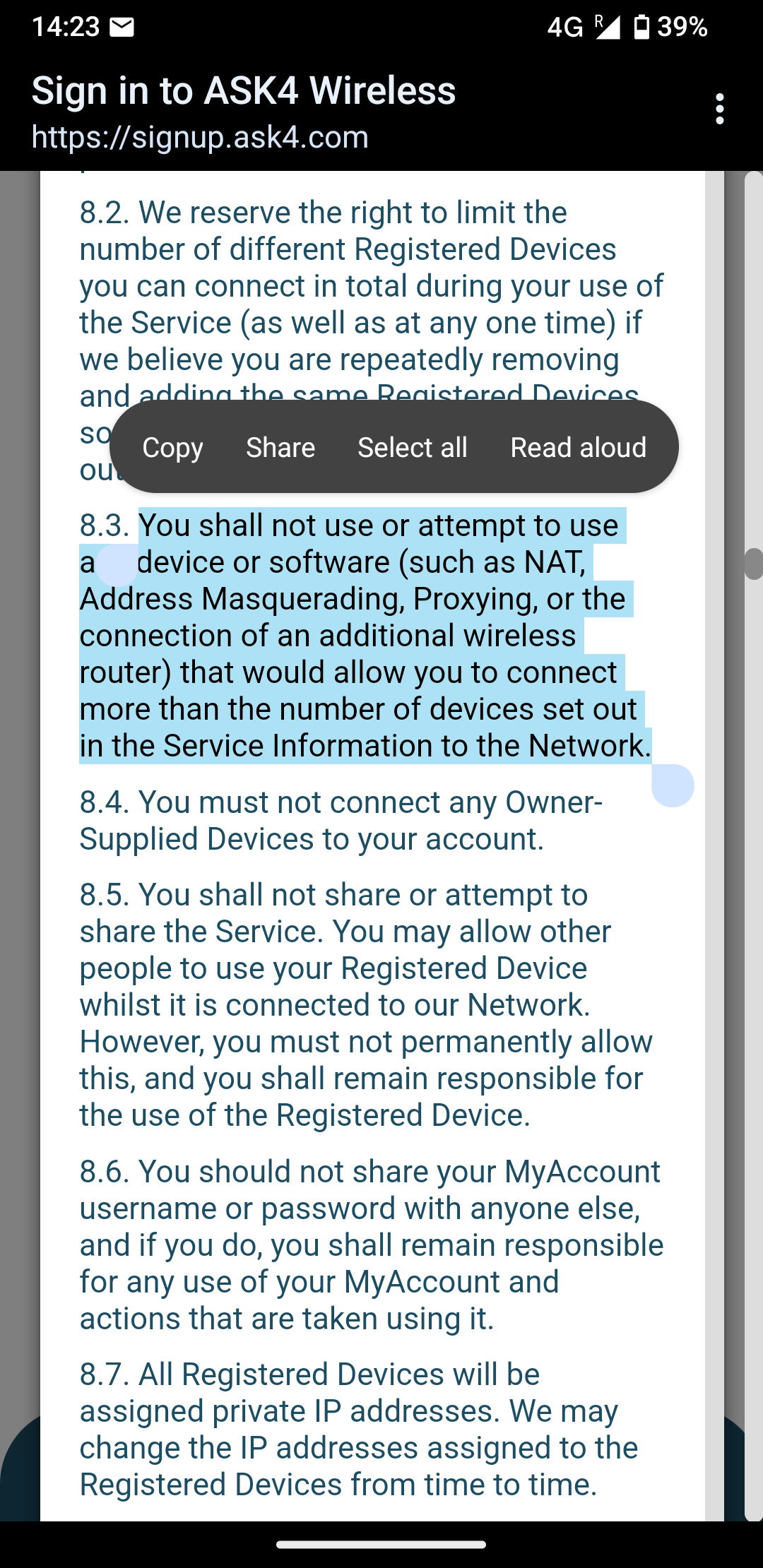I just moved into a student dorm for a semester abroad, and beforehand I emailed them asking whether they had ethernet ports to plug my router into (I use it to connect all my devices, and for WiVRn VR streaming). They confirmed that I could, but now that I'm here the wifi login portal is asking me to accept these terms from the ISP, which forbid plugging in a router. There's another clause that forbids "Disruptive Devices" entirely, defined as:
“Disruptive Device” means any device that prevents or interferes with our provision of the 4Wireless to other customers (such as a wireless access point such as wireless routers) or any other device used by you in breach of the Acceptable Use Policy;
So what are my options? I don't think I can use this service without accepting the terms, but also I was told by the student dorm support that I could bring a router, which contradicts this.
EDIT: some additional context:
- dorm provider is a company separate from my uni (they have an agreement but that's it)
- ISP (ask4) is totally separate from dorm provider, and have installed a mesh network that requires an account. On account creation, there are many upsells including one for connecting more than one device. The "free" plan only allows me to sign in on a single device, and I can upgrade to two devices for 15 pounds.
- ethernet requires login too
- VR streaming requires a high performance wifi 6 network, which is why I bought this router (Archer C6 from tp-link)

One option could be to get one of those 5G modems. It would require you to pay for your own Internet service, but many will then provide an Ethernet connection as an option, meaning you would never have to accept the legal terms presented to you. You could even use Wi-Fi because technically you never agreed to the terms, and practically speaking so many devices generate Wi-Fi networks I think it would be hard to enforce that you don’t produce any networks. Printers, smart watches, IP cameras… Are they really going to wardrive and triangulate the position of wireless devices on a regular basis? A sneaky network named after a printer or hidden SSID combined with ignorance for a TOS you never agreed to would probably slip through the cracks.
They don’t own the spectrum. I’m not sure it’s even legal to mandate that you can’t use Wi-Fi devices as long as you’re not using their network. When I was in university, there were still tons of such devices emitting signals that weren’t connected to the university network despite policy.